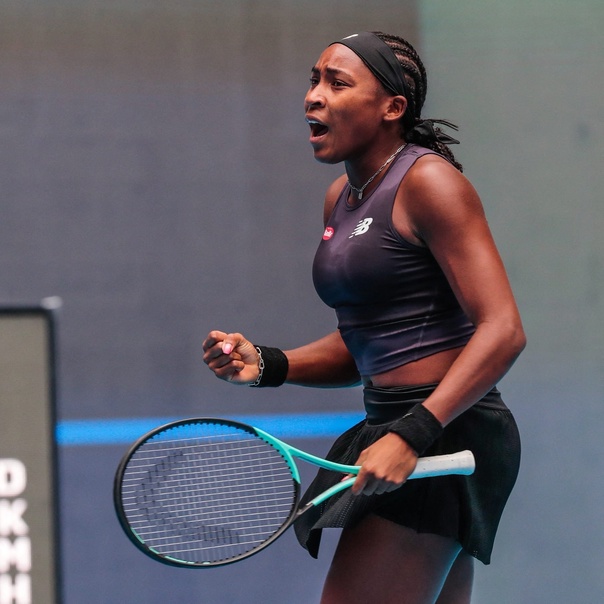
Gauff’s Questions Playing in Saudi Arabia, the aim is to promote equality…
Coco Gauff, the 20-year-old American tennis sensation, has been at the center of discussions about the intersection of sports, social issues, and global diplomacy. Recently, her decision to play in Saudi Arabia has sparked conversations about the role of athletes in promoting social change, particularly around issues like gender equality and human rights. While Saudi Arabia has been making strides toward modernizing its image—particularly through sports—it has also faced significant scrutiny due to its track record on women’s rights and freedom of expression. Gauff’s participation in events hosted by the kingdom raises important questions about the potential for sports to be a force for good in addressing these complex issues.
Sports as a Tool for Promoting Equality
One of the most compelling arguments for Gauff’s decision to play in Saudi Arabia is the role of sports as a platform for advocacy. Throughout history, athletes have used their fame and influence to highlight important social issues. From Muhammad Ali’s stance against the Vietnam War to Colin Kaepernick’s protests against racial injustice, sports have often been a stage for pushing boundaries and sparking dialogue on inequality. Gauff, known for her maturity on and off the court, could be seen as continuing this tradition.
By competing in a country where women’s rights have traditionally been restricted, Gauff’s participation in these tournaments sends a message of visibility and empowerment. For instance, in Saudi Arabia, women’s participation in sports has historically been limited, but recent years have seen significant reforms. Women are now allowed to drive, and female athletes can compete in professional events, even if they remain significantly underrepresented in many areas. Gauff’s presence in the kingdom could help highlight this evolving dynamic and encourage further change. The act of an internationally recognized athlete playing in Saudi Arabia may normalize women’s participation in public life, inspiring more young girls to pursue sports or careers in other fields.
Saudi Arabia’s Push for Reform and Sports Diplomacy
Saudi Arabia’s sports diplomacy efforts have been gaining traction in recent years, as the kingdom attempts to reshape its international image through high-profile events like the Saudi-backed LIV Golf Tour and the hosting of major sports competitions such as Formula E, boxing matches, and tennis tournaments. The country has been investing heavily in sports as part of its broader vision to diversify its economy away from oil, a strategy outlined in the Vision 2030 plan led by Crown Prince Mohammed bin Salman.
However, critics argue that these sports investments are part of a sportswashing campaign—a strategy used by authoritarian regimes to distract from human rights abuses or repressive governance by hosting major sporting events. While some athletes have chosen to take a stand against this practice, others, including Gauff, view it as an opportunity to influence change from within. Gauff has expressed her belief that her participation can contribute to the ongoing reforms in the country, especially regarding women’s rights. Whether this approach will lead to tangible improvements remains uncertain, but Gauff’s decision reflects a nuanced understanding of the potential impact of global sports figures in challenging entrenched societal norms.
The Ethics of Athlete Participation in Controversial Markets
The debate surrounding whether athletes should participate in events in countries with questionable human rights records is not new. The question is complicated: Should athletes boycott events in these countries to make a political statement, or should they engage and use their platforms to raise awareness Gauff has walked a fine line in her comments about playing in Saudi Arabia. She has acknowledged the kingdom’s human rights record while also recognizing the positive changes that have occurred, especially in terms of women’s rights. Her decision highlights the complex role of athletes in today’s globalized world—one where they are not just competitors but also influencers who have the power to affect social change.
At the same time, the challenge remains: Is it possible for one individual, no matter how talented or influential, to spark lasting change in a country with deeply entrenched social and political structures? It is unlikely that Gauff’s participation alone will bring about the radical transformations some might hope for, but it could be a part of a larger global movement that pushes for greater equality in the Middle East and beyond.
The Bigger Picture: Equality Beyond the Court
For Gauff, the decision to play in Saudi Arabia isn’t just about the impact she can have on that specific country but also about advocating for gender equality in sports and beyond. Gauff has been vocal about the challenges young women face in achieving equality, whether it’s equal pay in tennis or breaking down barriers in male-dominated sports. Her decision to compete in Saudi Arabia fits into this broader narrative of advocating for gender equality, not just on the court, but in all areas of life.
In conclusion, Coco Gauff’s decision to play in Saudi Arabia raises critical questions about the role of athletes in promoting social change and the ways in which sports can be used to address issues of equality. While her participation is unlikely to be a silver bullet for resolving the kingdom’s human rights challenges, it may contribute to the ongoing discourse around gender equality in Saudi Arabia and other nations with similar issues. Gauff’s choice highlights the evolving nature of sports diplomacy, where athletes are increasingly seen as agents of change, capable of using their platforms to influence societal progress both at home and abroad.



Be the first to comment